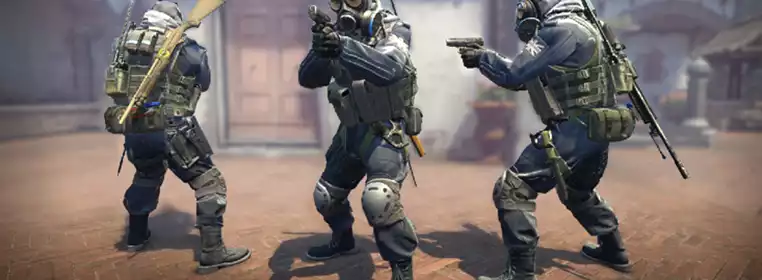CS:GO scene calls for faster servers

The Season of Giving may be over, but the CS:GO scene’s made it clear that there's still some things left on its wishlist.
Usually known for his sharp in-game observation, over the holidays, David "prius" Kuntz shared the following one by tweet instead:
Former pro player Jordan "n0thing" Gilbert was quick to agree, adding that improving the game's match-making servers should (relatively) not be that expensive:
Now what do small, blood-sucking arachnids have to do with Counter-Strike and why do they still cost so much, I hear you ask. Let me explain.
What is server tick rate?
When people talk about "tick rate", they are not discussing the parasite-to-server ratio. That's what the ban system is for, after all. Rather, they refer to the refresh rate of a game’s server. In multiplayer games, it's this server's job to keep track of where everything in the current session is. Said game state needs to be updated regularly. How often this is done, is called the tick rate.
A server with a 64 tick rate, like CS:GO's, recalculates everything 64 times per second. The higher the tick rate, the faster the updates and thus the more precise play for those in-game. While CS:GO's regular servers operate at 64 Hz, for professional competition 128 Hz servers are used. This is what prius is talking about in his tweet when he says regular players can't always emulate what the pros do, because their servers are simply not as fast.
Why not just upgrade the servers?
While there are companies offering faster servers to play on, these require payment for the privilege. This means that regular players have a premium forced on them if they want the best in-game experience, which feels a little off.
So why does Valve not just fix the issue by upgrading its servers? It's mainly down to internet connections. In the West we're all zipping along on our broadband, but many other regions have to make do with slower speeds. A lower tick rate evens the playing field between these, whereas a higher one would give an advantage to those players who could make better use of faster servers.
Another solution proposed on Reddit is to create different speed servers for different regions, to compensate for slower connections. The downside here is that it would cause a divide in the game's player base. With CS:GO player count finally improving again, it seems unlikely that Valve would want to be a part of that.
Server refresh rate in other games
The discussion is not exclusive to CS:GO either. Fortnite, for instance, launched with a measly 8 Hz tick rate. Nowadays, its servers still only run at 30, which has a lot to do with them having to accommodate cross-platform play. Developer Epic Games has managed to make a lot of other optimizations to make up for this fact, however, which makes the title’s gameplay feel much faster than you’d expect.
On the other end of the spectrum, there is Call of Duty, which historically runs at a similar rate as CS:GO. A recent analysis of Modern Warfare’s networking code suggests other problems though. Here, not every server tick updates the entire game state. Instead, the game splits the data across multiple packets, which has the potential of new discrepancies between player input and in-game outcome.
Clearly, netcode remains one of the harder things to implement in multiplayer titles. It's not just as simple as upgrading the product on either end. But with Counter-Strike going into its third decade, perhaps it's time to at least consider expanding upon its current solution. For now, the ball's back in Valve's court. Let’s hope it updates soon.
Image via Valve.
